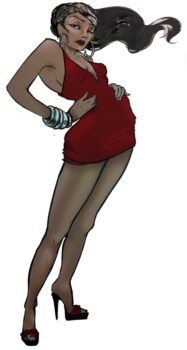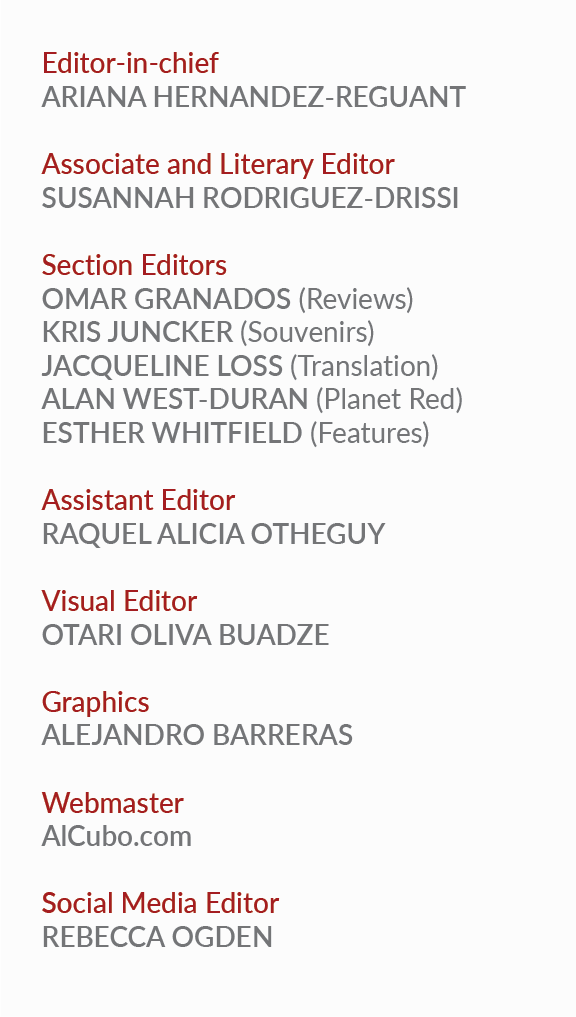When Marilú Maribel was promoted to the seventh grade at P.S. #7 School, she was eligible to try out for the cheerleading squad. More than anything at that time, Marilú wanted to be a cheerleader. She thought the short white pleated skirts and thick sweaters in green and white, the school colors, with a large number 7 on the front that the cheerleaders got to wear were really cute, but that wasn’t the sole attraction. What she truly wanted was simply to yell, really scream, something totally prohibited in her house (for her, anyway) and what better arena than one where shouting was sanctioned. Marilú’s mother thought it unladylike for girls to raise their voices and refused to allow her to participate in the cheering contests outside on the block; yet sometimes she caught Mamá arguing in a very loud voice (not really a scream but no yell either) with her father.
Anyway, Marilú was hardly interested in basketball, the team the cheerleaders serviced; nor was she interested in traveling for the away games (though most of her girlfriends jumped at the chance to see and meet new boys from other schools). She wanted an outlet where screaming at the top of your lungs—so hard that the veins in your neck bulge and turn dark purple—was not only permissible but praised. Marilu began to prepare herself for the competition by learning all the school cheers by heart; however, she had to quietly recite these or otherwise her mother might suspect something. She even made one up in order to impress the judges (Mrs. Kay, the teacher/sponsor of the squad, and Lucy, the captain and Cherilyn, co captain). Inspired by the cheers she had heard before on television, it went like this:
We’ve got the sun in the morning and the moon at night
And number 7’s boys are ready to fight!
They’re tough individuals and full of pep,
So come on team, get hep!
Marilú had no idea what hep or pep were. Her character drew from a brimming pool of impetuosity. Marilú Maribel was never a trouble maker, but she nevertheless managed to get herself into some distressing predicaments from time to time.
Sometime between losing the object of her affection, Nelson Santiago, to the dancing shadow of Sonia, the Colombian interloper, and getting her first period, Marilú became obsessed with becoming a cheerleader. Tryouts were on a Wednesday afternoon before basketball practice, though there were already team members lolling about to get a look at the wannabe cheerleaders. Before the official auditions, girls were nervously adjusting knee socks, skirts and bras. A couple of the older teammates were flirting with a cluster of frosted pink-lip-painted pom-pom swinging friends in a corner of the gym. Her best friend, Clarita, was already a color guard girl, so Marilú was alone.
I hate this. Why can’t we just get on with it? -she said to herself but didn’t dare use the voice she was saving for screaming her tonsils out. She had managed to sneak into the school basement before classes that day and yell her cheers out, in order to hear them for the first time the way they were intended to be heard—blaringly loud. Flushed with the power of her own voice, she didn’t even hear the janitor come out of the supply office/closet and shoo her away. Marilú ran up the stairs to the schoolyard and ducked behind a corner to evade the patrol guards.
Come on, come on. She tapped her sneakers against the shiny wood gym floor. Her skirt was straight, her panties tight, though not painfully so, her long thick hair hung from the sides of her head in large bushy pig tails (she despised them, and their unnaturalness, though Clarita insisted that’s how all cheerleaders had to wear their hair) as she bumped the white and green pom-poms against the cold bleacher. Come on, come on; I wanna scream.
In a far corner, a classroom door facing the gym opened. Out stepped Mrs. Lipchitz, walking briskly and deliberately toward Miss Kay, eyeing the bleachers the whole time. She only looked at the woman with the clipboard once, and then never let her narrowed eyes leave the bleachers. Miss Kay’s eyes widened, not at what Mrs. Lipchitz said, but at her outrage.
“Miss Kay! Do you understand?”
“Yes, yes. I see what you’re saying.”
The elder teacher pivoted on her thick heel and walked toward Marilú.
Hunched over, she was trying to clean off a smudge from her sneakers with spit when two opaque-stockinged legs, ending in two dull black spinster’s shoes, stood before her. Marilú recognized the shoes; she started at the pastiest face she had ever seen. She wondered, in the second or two before Mrs. Lipchitz spoke, how she could get the white powder to stick to her jaw that way. She almost uttered the question aloud when she was told to “march” to the classroom from which the shoes had just exited. Sitting in a side of the room facing 17th Street—which she didn’t get to see too often because most of her classrooms were on the other side of the building facing 18th Street—she looked in amazement at the delicate oaks just outside. Were they always there?
-“Mary Lou, do you have any idea why I’ve called you in here?”
Marilú had no inkling of what she was doing in there but she knew it wasn’t good. But what could it be? She was a good student (meaning she didn’t talk back, did her homework, and got “average” grades on everything). Having learned something about not provoking teachers, she had not been reprimanded since sixth grade when she locked Jimmy Belle in Mr. Jenson’s closet for snapping her bra strap, and before that there was only the time in first grade when she kissed little Tony Bartone.
Mrs. Lipchitz took a standard black and white marbleized cover lined notebook from her desk. Marilú remembered the time the boys in her class put a mouse in the science teacher’s drawer. Mrs. Lipchitz placed the notebook in front of her.
-“Is this yours?”
A ridiculous question—her name was on it—though her mouth formed a weak “yes”.
Mrs. Lipchitz opened it to reveal her looping, curvy longhand, the cursive she and Clarita practiced every afternoon on the front stoop, perfecting the lovely vowels and finding just the right angle for crossing the t’s. Mrs. Lipchitz passed page after page of answers to questions at the end of the history book chapters—the assigned work. What is the problem? I’m gonna miss tryouts. What does she want from me? Her mind and the wind raced through the oak leaves just outside the windows. Little funnels of dust skipped along the street.
Suddenly, no more cursive. Just blank pages, a big chunk of the notebook that had not been filled in but that was okay, she remembered, this is only up to chapter five. Then just as suddenly there appeared some scribbling and some turned back pages with various sizes of hardened bubblegum pancaked between the folds. That? Is that it?
-“You know, Mary Lou, that chewing gum is not allowed in class?”
She wasn’t expected to answer; she waited for the lecture. Maybe she’d have enough time to get back to the tryouts.
-“Mary Lou, look at this.” She pointed to the back cover, also scribbled over with Maureen and Mike, Joey and Joyce, Ivette and Rafael and other couples’ names surrounded by hearts or “true love forever” marked in below as a sort of footnote. Marilú had signed her name a few different times a few different ways. She dared not couple her name with another, for there really was no other at this point. She had written out some slogans like “make love not war” and “flower power” bordering some crude flowers, deeply outlined peace symbols and the names of popular bands like Led Zeppelin, Grand Funk Railroad and The Jackson Five. But amidst this various and frivolous assortment of scribblings was written something that Marilú hadn’t thought of herself , but had heard repeated over and over before and between history classes: Mrs. Lipchitz is a dipshit (although they hadn’t needed much creativity in mocking her name; in fact, whenever there was a new student to the school, especially any sixth graders, the older children took great delight instructing newcomers of the meanness, smell and zombie skin of Mrs. Lipchitz, who got her name, they’d say with relish, when, many years ago, legend had it, she got so mad at one of her students who habitually mispronounced her name that she spit shit at him). Marilú wasn’t even sure what a dipshit was.
Oh, ooh. In that instant when her eyes came to the point where Mrs. Lipchitz’s chipping fingernail met the page, Marilú knew that she had done something unthinkable—unthinkable for others to think Marilú was capable of thinking. Now what to do?
-“Did you write this?”
Another ridiculous question. Marilú could lie. She could say all her friends collaborated in the decoration of her back page. What to do?
-“Is this your handwriting?”
Why would she be so mad if she didn’t think it was mine?
-“Answer me.” Her eyes were so narrow that she couldn’t see much of the whites; her irises were milky but no color she could name.
-“I don’t remember.” Very good answer. She tried not to smile.
-“You listen here, young lady—well, I thought you were a young lady—you know very well that this is your writing in your notebook. How dare you turn this in to me with gum in the pages and all this mess? How could you? I have to say that I thought you were a nice Spanish girl. I thought there was hope for your kind; we give you people so many breaks and so many opportunities. I thought you were going to make us proud for a change. Now I’m very disappointed. I’m very disappointed in you, Mary Lou,” proclaimed menacing red and sticky, wrinkled lips.
No cheerleading for me. No screaming. No voice. I cannot say anything now. I can’t defend myself now. I’m supposed to stand up for my people when she doesn’t even know my people.
-“I’m . . .” She couldn’t finish, the sentence gagged in her throat.
-“You’re…?”
Marilú couldn’t speak; it was gone. The screaming voice and the talking voice. Mrs. Lipchitz threatened to take away the writing one too.
-“Well?”
The tears that fell from the corners of her eyes felt cool against her hot face. She was furiosa, as her mother would say. Furious that she wouldn’t get to scream—Come on, everybody, and show your stuff . . . Furious that this nasty old bitch could keep her from the only thing she showed interest in at school. Furious that she couldn’t even say her name was not Mary Lou but Marilú, and pronounce it with her best Cuban accent and say, For your information, I’m not Spanish.
“You have nothing to say then?” She closed the book hard. “You will get an F for the notebook grade and your semester conduct grade will be a D for this class. You will not be allowed to try out for cheerleading—only nice girls should be allowed to represent our school. I want you to rewrite your assignment in another notebook and turn it in to me by Monday, 8:00 a.m. I will tell your teacher about this and I expect you to let your parents know what this note means.”
Thanks to God, Mrs. Lipchitz didn’t know that her parents spoke English.
-“I had high expectations for you. You will have to do much more, much better now. You have to prove to me that you can still be a nice girl.”
No cheerleading ever now. What do nice girls say? What language do they speak?
-“I expect you to think about this. You’re dismissed.”
She didn’t though, didn’t think about it, if by “it” she meant Mrs. Dipshit Lipchitz, Lipchitz Dipshit. She thought a great deal about her own disappointment at not having a channel where she could vent her pure, untempered, unrestrained voice. She thought long and hard about being exposed under those brutal, dull eyes, and watched closely, even when she wasn’t looking. She considered at length what it meant to be thought a “nice girl” now fallen, now out of grace and viewed as a representative for “her people”.
She thought all these thoughts but later, at night. Now, walking through that gym, the girls with pom-poms swinging and shouting was painful, oh, so painful. Marilú’s heart leapt out of her mouth and dragged along the wooden, shellacked floor. Her veins slid easily along the plank separations on wood grains. Next her liver was expelled and it too, plump and vibrating, loitered behind her. Her guts were spilling out of her face and all she could do was burst with a silence that blocked out all of the cheering, singing, chanting, go, go, go, go, go.


